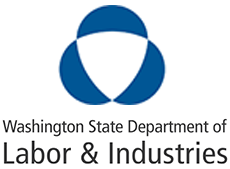Projects
BETA Project Approach
BETA research lab aims to develop a world-class, cutting-edge, externally funded research program. The lab actively pursues state and federal funding opportunities and has a successful record. The lab welcomes solving your problems and providing innovation (R&D) for your company through the WSU Broad Industry Project Agreement (BIPA). BIPA is Industry-Sponsored Collaborative Research. The lab values industrial relationships but does not depend on or actively seek donations. Donations, if preferred, will be coordinated with the CEE Chair or SDC Director where needed. BETA lab actively pursues opportunities from the following agencies.
- Federal: National Science Foundation and Institutes of Health
- Federal: Department of Energy, Transportation, Agriculture, Commerce, Labor, and Education
- State: Department of Transportation, Labor and Industries
- Industry: Construction Industry Institute (CII), Charles Pankow Foundation, etc.
Advanced Technology
Safety and Health
Management Science
Past Projects
Disadvantaged Business Enterprise Supportive Services Statement of Work
Orange County Sustainability Decathlon
Department of Energy (DOE) Solar Decathlon Design and Build Challenge
Effective Practices of Construction Management and General Contractor




